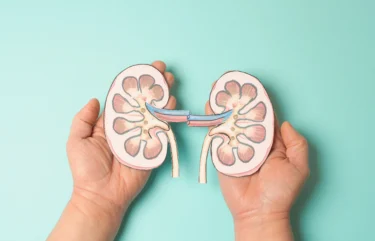Amritarishta: Uses, Benefits, Side Effects and more!
By Dr Ashok Pal +2 more

Get,

to manage your symptom
Get your,


4 Cr+ families
benefitted

OTP sent to 9988776655



You’ve successfully subscribed to receive
doctor-approved tips on
Whatsapp

Get ready to feel your best.

Hi There,
Download the PharmEasy App now!!


Register to Avail the Offer
Send OTPBy continuing, you agree with our Privacy Policy and Terms and Conditions

Hi There,
Sign up on PharmEasy now!!
Trusted by 4 crore+ families

OTP sent to 9988776655



You have unlocked 25% off on medicines




Code: NU25
By Dr Ashok Pal +2 more
Table of Contents
Ayurvedic medicines are widely used in India, Nepal, Bangladesh, Pakistan, Sri Lanka, and Bhutan. Amritarishta is an Ayurvedic formulation. The ingredients in amritarishta include amrita, patala, bilva, gambhari, shyonaka, agnimanta, bruhati, prashniparni, shaliparni, kantakari, jala, gokshura, jaggery, jeeraka, nagara, parpata, katuki, ativisha, saptaparna, pippali, maricha, and self-generated alcohol1. It contains 5 to 8% of self-generated natural alcohol. It also has water that may help in absorption and proper digestion and may boost natural immunity2. The main ingredient in amritarishta is the dried stem of amrita/guduchi (Tinospora cordifolia)3. Amritarishta may have some effects on arthritis, gouty arthritis, fever, rheumatic fever, viral fever, auto-immune disorders, and skin disorders1.

Did you know?
The chemical constituents of amritarishta include alkaloids, steroids, and a high amount of phenolic compounds3.
Amritarishta may have the following beneficial properties:
Some of the potential uses of amritarishta are described as follows:

A study6 by Tiwari et al., 2014, was conducted where amritarishta was tested for its blood sugar-lowering activity in animals. The results showed that it significantly lowered the fasting blood glucose (FBG) and low-density lipoprotein (LDL) levels (bad cholesterol), , and triglycerides (fats) levels and elevated the high-density lipoprotein (HDL) level (good cholesterol). This result suggests that amritarishta might help lower the blood sugar levels. However, this study is insufficient and requires more studies to support the potential use of amritarishta for decreasing blood sugar levels in the body. Diabetes is a very serious condition; therefore, doctors’ consultation is necessary before taking amritarishta for managing blood sugar levels in the body.

High triglyceride (fats) and cholesterol levels in the blood may be linked to heart-related diseases. In a study conducted in 2013, amritarishta was found to lower cholesterol, triglyceride, and LDL (low-density lipoprotein) level and increase the HDL level. It significantly lowered the atherogenic level (reflects the triglyceride and HDL cholesterol). These results suggest that amritarishta may have anti-atherosclerotic (reduces the fats deposition in arteries) activity that might be beneficial for managing heart-related diseases3. This information is insufficient and require more human trials to suggest the uses of amritarishta. Therefore, people should speak to their concerned doctors and only have amritarishta if prescribed.

The dried stem of amrita is the main ingredient in amritarishta3. In traditional medicine, amrita with ginger has been used to manage rheumatoid arthritis. The extract of amrita has been stated to increase the joint cartilage thickness in animal studies. It was also reported to relieve osteoporosis (a condition where the bones become weak and brittle) in animals. Therefore, amrita might be helpful in dealing with osteoarthritis and osteoporosis. However, these claims are related to animals and not to humans. Therefore, amritarishta needs large-scale human trials to support its potential uses for osteoporosis and arthritis.

In a study8, the amrita extracts reduced anxiety (caused due to sleep deprivation) and other mood disorders in animals. Also, the herb amrita may have antioxidant properties that might enhance the weakened age-related cognitive (related to thinking, remembering, and reasoning) function, including intellectual decline, memory loss, and change in behavior and personality. However, this information is insufficient and more studies are required to suggest the benefits of amritarishta for mental conditions. People should never use any herbal preparations to self-medicate themselves.

The herb amrita may relieve nephrotic syndrome (the body excretes too much protein in the urine) due to its antioxidant, anti-inflammatory, and immunomodulatory activity. Nephrotic syndrome is a kidney disease mostly occurring in children. The amrita extract may have benefits in managing kidney diseases like nephrotic syndrome and urinary tract infections caused by Klebsiella, E. coli, and other gram-negative microbes. You must consult a qualified doctor for proper advice on kidney-related diseases.
Although studies show the benefits of amritarishta in different health conditions, this information is insufficient. Hence, there is a need for further studies to establish the true extent of the benefits of amritarishta on human health. Furthermore, every person may respond differently to these herbs. Therefore, it is important to consult a doctor before using amritarishta for any medical condition.
Based on my experience, I highly recommend considering Amritarishta, a polyherbal Ayurvedic medicine that has been traditionally used for various ailments. Recent studies have shown that this medicine might exhibit remarkable hepatoprotective properties, meaning it can help protect and support the health of the liver9.
Dr. Siddharth Gupta, B.A.M.S, M.D (Ayu)
Amritarishta can be taken with water after food2.
However, it is advisable to consult your doctor before taking amritarishta. Your doctor will examine you thoroughly and advise you on the dose and form accordingly. In addition, we recommend you do not replace or discontinue your ongoing medications with any ayurvedic or herbal preparations without seeking the medical advice of a doctor.
Also Read: Prabhakar Vati: Uses, Benefits, Side Effects, and more!
There is no sufficient scientific information on the side effects of amritarishta in humans. But if you notice any side effects after taking amritarishta, you must notify your doctor. They will be the best person to provide appropriate treatment for any side effects.
I would recommend considering Amritarishta, an Ayurvedic medicine that has been traditionally used for Vatasanshman karma (alleviating Vata dosha), Brihangan karma (promoting proper digestion), and specifically for conditions like Kamala (Jaundice) and Pandu (anaemia). The combination of various herbs in Amritarishta is believed to have synergistic effects, working together to balance Vata, improve digestion, and address specific conditions like Jaundice and anaemia.
Dr. Rajeev Singh, BAMS
Before consulting, people should never use amritarishta or any other herb to self-medicate themselves.
Also Read: Paneer Dodi: Uses, Benefits & Side Effects
There is no sufficient information on the interaction of amritarishta with any medicine. Therefore, if you are on any medication and want to take amritarishta, you must consult your doctor as they would guide you best on this.
Also Read: Kantakari: Uses, Benefits & Side Effects
You should always consult your doctor before taking any Ayurvedic preparation. They will guide you properly regarding the dosage and how long you can take amritarishta.
Amritarishta may be good for diabetes. In a study conducted on animals, amritarishta lowered the FBG along with cholesterol, triglyceride, and LDL levels and increased the HDL levels. The lowered FBG suggested that it might be beneficial for diabetes6. However, human studies are required to confirm the blood glucose-lowering activity of amritarishta in humans. Diabetes is a serious health condition and needs proper diagnosis. And only use it if prescribed by doctors.
Amritarishta might be useful for dealing with fever, viral fever, rheumatic fever, arthritis, gouty arthritis, auto-immune disorders, and skin disorders1.
Amritarishta might be beneficial to the heart. In a study3 (Tiwari et al., 2014), amritarishta reduced triglyceride, cholesterol, and LDL level and elevated the HDL level. This might be useful for managing heart-related diseases. However, this information needs scientific support and more studies on humans are also required to suggest the uses of amritarishta for heart health.
It is advisable to consult your doctor before taking amritarishta. You can describe your condition/problems to them, and accordingly, they will prescribe you the form and dosage.
There is not enough data available on the side effects of amritarishta, but if you notice any symptoms, you must immediately consult your doctor.
The dried stem of amrita, also called guduchi, is the main ingredient in amritarishta3.
It is better to avoid taking amritarishta during pregnancy as there is not enough information available on its safe usage during pregnancy.
There is no sufficient information available on the interaction of amritarishta with any medicine. Therefore, it is advisable to consult an Ayurvedic practitioner before taking amritarishta.
Disclaimer: The information provided here is for educational/awareness purposes only and is not intended to be a substitute for medical treatment by a healthcare professional and should not be relied upon to diagnose or treat any medical condition. The reader should consult a registered medical practitioner to determine the appropriateness of the information and before consuming any medication. PharmEasy does not provide any guarantee or warranty (express or implied) regarding the accuracy, adequacy, completeness, legality, reliability or usefulness of the information; and disclaims any liability arising thereof.
Links and product recommendations in the information provided here are advertisements of third-party products available on the website. PharmEasy does not make any representation on the accuracy or suitability of such products/services. Advertisements do not influence the editorial decisions or content. The information in this blog is subject to change without notice. The authors and administrators reserve the right to modify, add, or remove content without notification. It is your responsibility to review this disclaimer regularly for any changes.
Comments

Leave your comment...
You may also like
Comments